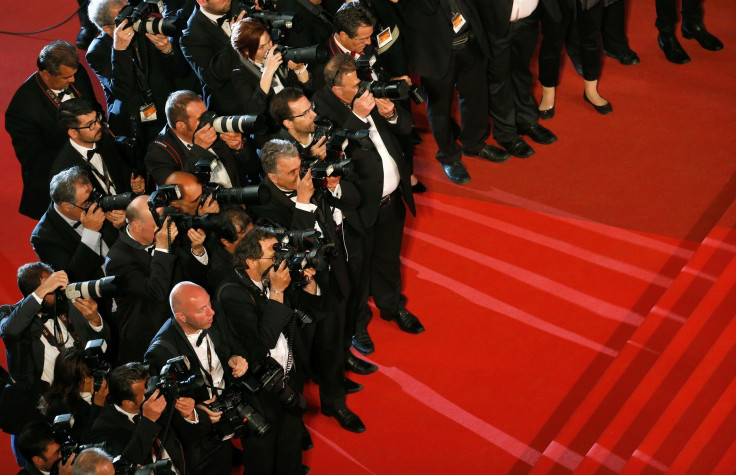Journalistic privilege: Setting limits on confidentiality

Various cases involving journalists revealing scandalous and defamatory issues have made quite the headlines in recent news. Beyond carrying out the responsibility to reveal scandalous issues affecting public interest, journalists have faced legal ramifications and pressures due to their refusal to reveal sources. This journalistic privilege received quite hostile reactions, most recently from Australia’s New South Wales Court of Appeal.
The Guardian reported last month about the case of Chinese-Australian businesswoman Helen Liu. Liu demanded that journalists, who wrote about her alleged deeper relationship with Labor defence Minister Joel Fitzgibbon, reveal their sources. In the series of Fairfax investigative stories authored by Richard Baker, Nick McKenzie and Philip Dorling published in 2010, Liu was alleged to have paid Fitzgibbon $150,000 as part of the latter’s political campaign.
The stories supposedly were based on documents acquired from Liu’s business records from unidentified sources, but Liu claimed these documents may have been forged. This prompted Liu’s camp to apply to the court for preliminary discovery, in order to identify the sources and pursue applicable legal actions.
Six years after since the investigative series’ publication, legal proceedings took place in the quest to identify the sources. Finally, Justice Lucy McCallum in the NSW Supreme Court ordered the journalists to reveal the sources who provided them with the information. Fairfax, on the other hand, appealed to court but was unsuccessful. The court remained firm in its order to Fairfax: Reveal your sources and show the documents which led cause quite a stir in the Australian political arena.
With this issue in mind, many unsettling quandaries have been raised regarding the principles of journalism. Perhaps, the most frightening question brought about by ruling are these: What are the conditions of press freedom? Are journalists allowed to reveal their sources? Will they continue to face legal threats to reveal the sources of investigations of public interest? What then of their safety?
One of the basic conditions of press freedom is the protection of sources because without such protection, sources may be dissuaded to give out information to journalists on matters of public interest, as read on the International Standards on the Protection of Sources. There is a belief that issues such as corruption in government and activities of organised crimes relate to matters of high public interest, thus, should be made public. In this instance, for sources to speak out, the pre-condition of safeguarding their anonymity is vital.
However, these conditions oftentimes put into question the credibility and motives of the source. If sources are known, it will be less of a burden for those involved in the issue to clear their name and file for legal and moral damages. In Liu’s case, sources may have deemed it necessary to reveal issues as it involved the government officials, but the court order on a journalist to reveal their sources is another story.
In the US, journalists could be forced to reveal their confidential sources, and possibly face jail time if they refuse to do so. This brings the problem of confidentiality and safety. Fortunately, many states have taken it upon themselves to protect journalists from revealing their sources, and even unpublished materials in some. Most states have passed laws for this and some have made sure to include “free press provisions” in their state constitutions.
“Journalists consider a promise to protect the identity of a confidential source a sacred trust. This relationship is so sacred that legal battles often arise out of a reporter's insistence on protecting his or her source in the face of judicial subpoenas commanding otherwise,” Leanne Phillips wrote in Legal Zoom.
Journalists also argue that forcing them to reveal their sources obliterates their right on the newsgathering process and blurs the line on the independence of news media and the government. More so, journalists who reveal confidential sources may be subject to civil liability for violating promises made to the confidential source.
Another story that pushed the boundaries of journalism and confidentiality of sources was the issue on the Panama Papers, a topic most talked about by leading publishers and journalists, such as the New York Times. Even the mobile news app Born2Invest covered the issue, not on its political ramifications but from a business and finance standpoint.
There is an exception to every rule. Just as the right invoked in press freedom, protection of sources is not absolute, thus it is bound by certain limits. This limitation is strongly echoed in the 2002 Declaration of Principles on Freedom of Expression in Africa, which suggests that journalists should be ordered to identify sources in matters affecting the public interest and the circumstances are vital in nature. But it clearly states that courts should never order the disclosure of sources in the context of a defamation case.
In summary, the most crucial principle in this issue is the ability of both sides to balance interests, even with the call to respond to issues of public interest, confidentiality of sources in lieu of credibility and trust should not be overlooked.





















